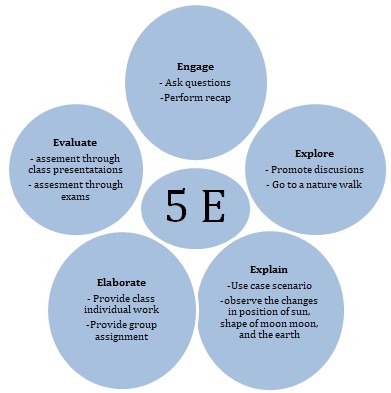Introduction
Over the past decade, there has been a dire need to improve the education system in the state of Georgia. As a result, the education department in the state adopted a system known as the Georgia Standard of Excellence (GSE). The system was adopted to guide the teachers and ensure that the students are prepared for real-world challenges by succeeding in colleges and workplaces (Georgia Standards of Excellence., n.d.). Consequently, this science lesson plan will be anchored on the chore concepts of GSE. This lesson plan’s big idea is to impact the students and prepare them for real-world challenges positively. Therefore, the learners will be helped to identify issues and formulate answers by themselves without requiring any external sources. In other words, the study plan will horn their critical thinking skills and enable them to solve the current problems.
The lesson will also use an integrated approach where collaboration, integration, constructivism, inquiry-based learning, and reflection will be widely used. The plan recognizes that the teacher only offers guidance to the students, while learners can identify and handle challenges they are experiencing. Although the teacher will be present during most class activities, his actions will only be geared towards performing supervisory roles. Two essential questions instigated this plan. First, at the end of this lesson, can students identify real contemporary issues? Second, have the students’ perceptions about earth science changed?
Additionally, the lesson will encourage the students to engage other students and relevant stakeholders during and after the classwork. Exploring new topics and ideas will greatly be encouraged as all the activities will provide an avenue for exploring topics and conducting research. Moreover, explaining and elaborating a concept will be enhanced during the lesson as learners will be required to elaborate their ideas on a specified topic. An evaluation will also be highly witnessed during the lesson since it will help understand the learner’s level of understanding. In other words, the lesson will mainly focus on improving the student’s ability to solve real-world problems. Evaluation will be performed using assessment tests, recap activities, class discussions, and presentations.

Outline
- Middle-Grade Lesson Plan (8th Grade)
- Name of Activity: Earth Science
- Materials, Resources, and Educational Technology Needed:
- Computer with projector for PowerPoint presentation and internet access
- Pens and notebooks
- Lesson Objectives
- The learner will be able to identify real-world challenges by conducting research to formulate solutions to the issues.
- The learner will be able to decipher data obtained from observation by recording the changes in the sun’s position, and shape of the moon.
- The learner will demonstrate effective command of demonstrating the relationship between the sun, moon, and earth.
- Grade Level Geargia Content Standards Addressed
- Identify real-world challenges, make logical references from the research, and back the idea by citing specific evidence from the natural environment.
- Collect accurate data and analyze them using various procedures presented.
- Interpret the information provided and derive a meaningful conclusion from the result.
- Vocabulary or Concepts
- Real-world challenges – The contemporary issues that affect people daily – Will be addressed when the students participate in class discussion by answering the questions and exploring society.
- Observation – Practical activities designed to investigate an issue – This will be conducted when observing or addressing a phenomenon. It will be performed in the lab in groups.
- Big idea -The main expectation of the lesson – This will be addressed throughout the lesson as all activities will be aimed at preparing the learner for real-life challenges.
Differentiation and UDL Strategies Needed for This Lesson
Depth of Knowledge Level
- Level 1: Recall & Reproduction – The activities at this stage include asking the questions, and the students are expected to respond
- Level 2: Skills & Concepts – The teacher will present PowerPoint presentations while the students complete the assignments and demonstrate the use of knowledge.
- Level 3: Strategic Thinking & Reasoning – The teacher will use a case study and experiments to think deeply about the scenario.
- Level 4: Extended Thinking – The teacher will evaluate the students after demonstrating a concept.
Lesson Plan
Reference
Georgia Standards of Excellence. (n.d.). The Georgia Department of Education Division of Curriculum.